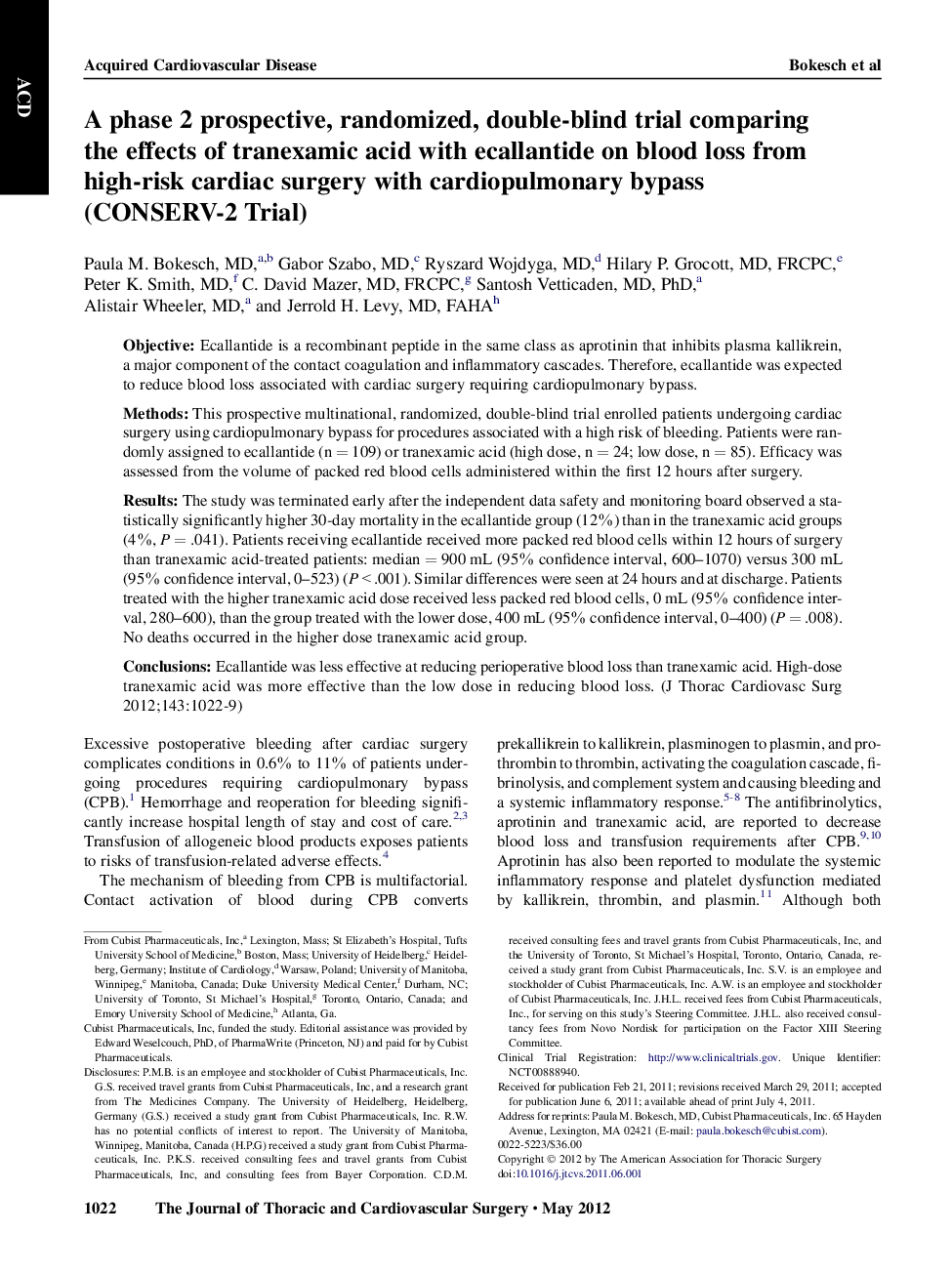| Article ID | Journal | Published Year | Pages | File Type |
|---|---|---|---|---|
| 2982144 | The Journal of Thoracic and Cardiovascular Surgery | 2012 | 8 Pages |
ObjectiveEcallantide is a recombinant peptide in the same class as aprotinin that inhibits plasma kallikrein, a major component of the contact coagulation and inflammatory cascades. Therefore, ecallantide was expected to reduce blood loss associated with cardiac surgery requiring cardiopulmonary bypass.MethodsThis prospective multinational, randomized, double-blind trial enrolled patients undergoing cardiac surgery using cardiopulmonary bypass for procedures associated with a high risk of bleeding. Patients were randomly assigned to ecallantide (n = 109) or tranexamic acid (high dose, n = 24; low dose, n = 85). Efficacy was assessed from the volume of packed red blood cells administered within the first 12 hours after surgery.ResultsThe study was terminated early after the independent data safety and monitoring board observed a statistically significantly higher 30-day mortality in the ecallantide group (12%) than in the tranexamic acid groups (4%, P = .041). Patients receiving ecallantide received more packed red blood cells within 12 hours of surgery than tranexamic acid-treated patients: median = 900 mL (95% confidence interval, 600–1070) versus 300 mL (95% confidence interval, 0–523) (P < .001). Similar differences were seen at 24 hours and at discharge. Patients treated with the higher tranexamic acid dose received less packed red blood cells, 0 mL (95% confidence interval, 280–600), than the group treated with the lower dose, 400 mL (95% confidence interval, 0–400) (P = .008). No deaths occurred in the higher dose tranexamic acid group.ConclusionsEcallantide was less effective at reducing perioperative blood loss than tranexamic acid. High-dose tranexamic acid was more effective than the low dose in reducing blood loss.
